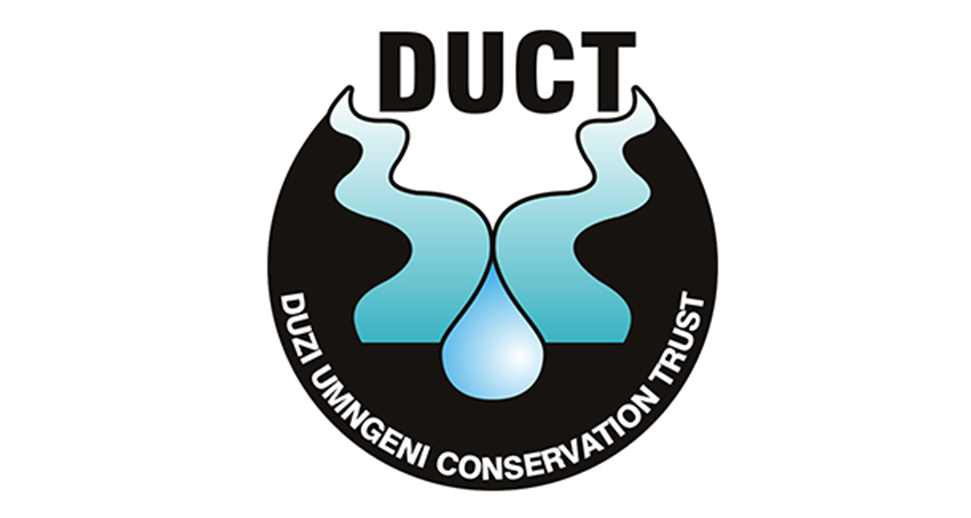TO FRACK OR NOT TO FRACK?
Submitted by David Still, Chair of the Duzi-uMngeni Conservation Trust, writing in his personal capacity
This article was published in the Witness on Tuesday, 3 November 2015 alongside a report on the (stormy) public consultation meeting which had taken place at Ashburton on the previous day.
This week a number of meetings are being held around the Midlands to inform interested members of the public about the proposal by Rhino Oil and Gas to commence exploration for shale gas in the Midlands. If the exploration indicates that there are significant shale gas reserves in this region, then there will be subsequent applications for permission to exploit this gas using the hydraulic fracturing technique, known commonly as fracking.
For most of us resident in KZN the debate regarding whether or not to frack the Karoo has been something we were aware of, but regarding which we did not necessarily see the need to develop an informed opinion. What most of us may not have been aware of is that “Karoo” type shale extends over much of South Africa and is in fact just as much beneath our feet here in the Midlands as it is in the Karoo itself. So, with the announcement of Rhino Oil and Gas’ intention to carry out exploration the issue is now literally in our back yard, and perhaps even in our front yard.
Advocates of fracking make several compelling arguments to exploit shale gas. We are told that even by conservative estimates fracking will boost South Africa’s GDP by 3.3% per annum for over 25 years, will increase tax revenue by R35 billion per annum and will create 300 000 new full time jobs. That’s assuming there is 570 billion cubic metres of exploitable gas – but it could be much more, and it could be much less – no one actually knows whether there is much gas in our shale, which is why exploration is needed (that’s assuming you are open to fracking as an option). Industry advocates go on to point out that the burning of shale gas produces half the greenhouse gas per unit of energy produced compared with coal, so environmentalists should welcome it. Then South Africa will reduce its dependency on oil imports, and the rand will strengthen. And they say that while there is a risk of environmental contamination from fracking, the evidence to date indicates that the risk is very small and not out of proportion with any comparable economic activity.
Given this rosy picture, what’s possibly not to like? Environmentalists have a reputation for being opposed to all development, so if they are against fracking isn’t that just to be expected?
Last year I and three of my DUCT colleagues attended a two day seminar on fracking at the CSIR in Pretoria. It brought together experts from industry and environmental organisations, who gave us very well prepared presentations outlining all sides of the debate. I went up to Pretoria agnostic about fracking, but came back convinced that we should not rush into shale gas development. We may yet go that route, but there are a number of matters that should give us pause for thought.
Firstly whether or not fracking will pose a significant risk to our water resources (and from my own research I am not convinced that it will or won’t) there is absolutely no question that it will have a huge impact on our transport networks. To frack just one well typically requires one or two thousand large truck loads of water, which means thousands of wells will require millions of truck loads of water. It is debatable whether or not we have that water to spare (the current drought
highlights just how stretched our water resources are), but if those responsible for the management of our water resources simply continue to ignore the provision in the Water Act of 1998 for an environmental reserve flow to be maintained in our rivers, then I suppose the water can be found (to the detriment of river health). Then if a well is successful many thousands more truck loads of gas will be trundled out of the well fields on the way to wherever the gas will be used. With all the water trucked in and all the gas trucked out, it is debatable whether the carbon footprint of shale gas is as environmentally friendly as its advocates make out. So for those who wonder how on earth we will survive on our roads (particularly the N3) if the number of heavy vehicles continues to grow as fast as it has been growing, you ain’t seen nothing yet. And when the gas has all been tapped out after five or ten years (that’s how long a shale gas well lasts – not very long for all the trouble) and the roads are trashed, who I wonder will be paying to fix them up again?
Secondly, as a nation we are just not doing very well when it comes to the management of waste, regulation of mining and control of pollution. We simply do not have the capacity or the will at local and national government level to do the basics, like collecting solid waste, preventing dumping, closing down illegal mining operations (taking place in broad daylight) and controlling sewage and industrial pollution. The successful regulation of fracking would require major resources, skills and political will which we presently do not have. Before we countenance fracking, we should be sending a selection of our best and brightest young hydrogeologists to work in countries where fracking is taking place to gain experience in the industry and in particular in the government agencies which regulate the industry.
Thirdly, if it is there, the gas is not going anywhere. Although the price of oil has come down drastically in the past two years, in the long term it can only go up because the world’s reserves of fossil fuels are finite. While we could certainly use an economic boost right now, our children or our children’s children will very likely need it more than us. Why not spend the next twenty or thirty years learning everything we can about the shale gas industry from countries where it is properly managed, establishing once and for all if the environmental risks can be adequately contained. By then probably the price of gas will have gone way up and if we really must use it then we should be able to afford to exploit it in a more environmentally responsible manner.
There is no good reason for us to rush to exploit shale gas, whether it is there or not. Our neighbour Mocambique has huge gas reserves and is able to exploit them without fracking anything. We should buy gas from Mocambique and support their industry, for as our neighbours in the region their prosperity grows our prosperity.
Meanwhile, concerned citizens in the Midlands, particularly landowners, should take a keen interest in the exploration process, and should keep Rhino Oil and Gas under close scrutiny.
Public Meetings:
2 November 9.30am Ashburton Hall;
2 November 2.30pm Richmond Agricultural Hall;
3 November 2.30pm Lion’s River Club;
4 November 2.30pm Mooi River Country Club;
5 November 9.30am New Hanover Hall;
5 November 2.30pm at Greytown Lodge conference hall (Voortrekker Street)





































